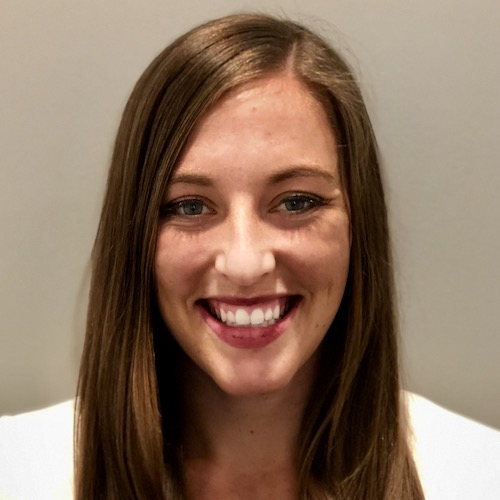Working as a medical assistant is a great way to gain experience in healthcare. Many people choose to work as medical assistants before pursuing a more advanced healthcare career, such as a physician assistant (PA).
Medical assistants learn the basics of healthcare by working alongside physician assistants to help patients and perform basic bedside procedures. Medical assisting gives you good exposure to the knowledge you’ll need for higher level healthcare careers.
If you are thinking of becoming a medical assistant or already are one, you may consider continuing in your career path to become a physician assistant.
This guide will go over how to transition from medical assisting to becoming a physician assistant, including programs, how to choose one, and more.
Can a Medical Assistant Become a Physician Assistant?
Yes! Medical assistants can become physician assistants. In fact, many physician assistants work as a medical assistants before PA school.
It will take a lot of time and effort, but the career payoff can be well worth the sacrifices. Becoming a physician assistant requires at least a master's degree, which usually means about 6 years of school (4 undergraduate + 2 year graduate).
Most physician assistant programs require you to have a bachelor's degree and some healthcare experience before you can apply. Most programs prefer that you have a science-based undergraduate degree such as biochemistry, biology, or chemistry.
There are a few pre-professional programs that accept recent high school graduates or applicants without an undergraduate degree. These are usually accelerated programs and are quite rigorous. They combine the bachelors degree and masters degree into a 5-year program.
After completing your education through an accredited PA program, you will have to take the Physician Assistant National Certifying Exam (PANCE). This exam is a licensing exam that covers 300 questions about medical and surgical knowledge required to become a physician assistant. After you pass your exam, you can start working as a PA.
Medical Assistant to Physician Assistant Programs
If you are already working as a medical assistant, you may have a medical assistant certification or an associates degree in medical assisting. While this knowledge can help you in your career, there are not any programs that continue on from medical assisting to physician assistant.
Some educational tracks offer bridge programs, like LPN to RN, which are just extensions of a program that allow you to advance your career. There are no MA to PA bridge programs.
If you earned a medical assisting degree, you may be able to apply some of your medical assisting credits towards your undergraduate degree before you apply for PA school. Additionally, if you passed the CCMA exam, you may be able to get college credit for it thanks to a partnership between the NHA and ACE.
Here are some examples of schools offering PA programs that you can take as a medical assistant:
University of Pittsburgh – Pittsburgh, PA (In-Person)
The University of Pittsburgh is a two-year program that includes classroom time, hands-on labs, and out-of-classroom learning experiences for PA students. If you are interested in an even higher-level degree, they have a bridge program where you can complete your doctorate degree one year after your masters degree.
Clinical hours through the University of Pittsburgh include rotations in internal medicine, family medicine, emergency medicine, pediatrics, surgery, behavioral health, obstetrical and gynecological medicine, and one or two elective areas of study.
Program details:
- In-person classes, with some online classes available
- 2 years after completing an undergraduate degree
- Undergraduate degree required
- $37,000 in state tuition
- $98,000 out of state tuition
- 82 credit hours, 2 years after undergraduate degree
- Accredited by the Commission on Accreditation of Allied Health Programs
- 99% PANCE passing rate
- Learn more here
Stony Brook School of Health Professions (Stony Brook, NY)
Stony Brook School of Health Professions was ranked as one of the top 15 PA programs by Forbes magazine. They have small class sizes with a maximum of 12 students per professor, and many of their students are offered jobs prior to graduation. The first year of the program includes mostly didactic courses focusing on foundations of medicine, anatomy and physiology, pathology, and critical thinking.
The second year of courses is centered around hands-on experiences. Clinical experience includes rotations in medicine, surgery, geriatrics, emergency medicine, obstetrics and gynecology, pediatrics, orthopedics, and psychiatry.
Program details:
- In-person classes
- 2 years
- Undergraduate degree required
- $44,000 in-state tuition
- $85,000 out-of-state tuition
- 66 credit hours, 2 years after completion of undergraduate degree
- Accredited by the Commission on Accreditation of Athletic Training Education
- 95% PANCE passing rate
- Learn more here
The University of Texas Southwestern Medical Center at Dallas (Dallas, TX)
The University of Texas has had a successful PA program since 1972, and in 2020 ranked #7 in the U.S. News and World Report list of best grad schools. It is one of the longer programs that includes 15 months of clinical rotations in a variety of healthcare settings.
The first half of the program is focused on didactic learning, and you must maintain a GPA of at least 2.75 to be able to advance to the clinical portion of the program. Clinical hours include emergency medicine, family medicine, surgery, psychiatric medicine, infectious disease, and women's healthcare.
Program details:
- In-person classes
- Undergraduate degree required
- $40,000 in-state tuition
- $85,000 out-of-state tuition
- 112 credit hours, 30 months post undergraduate degree
- Accredited by the Middle States Commission on Higher Education
- 98% PANCE passing rate
- Learn more here
Miami Dade College (Miami, FL)
Miami Dade College is one of the more affordable programs for in-state students, with online learning to allow non-traditional students an opportunity to succeed. The PA program at Miami Dade College states that one of their main goals is to provide educational opportunities for minority groups and non-traditional students.
While courses can be completed online from anywhere in the United States, you will be required to travel to or reside in Florida during the last 12 months of your education to complete in-person clinical requirements. Clinical rotations include family medicine, pediatrics, surgery, and women's heatlh.
Program details:
- Online with in-person clinicals in Florida
- 27 months after earning your undergraduate degree
- Undergraduate degree required
- $32,000 in-state tuition
- $74,000 out-of-state tuition
- 130 credits, 27 months after completion of undergraduate degree
- Accreditation by the Commission on Education for Physician Assistants
- Learn more here
University of North Dakota (Grand Forks, ND)
The University of North Dakota structures its program toward students with previous experience in healthcare. This includes medical assistants, registered nurses, and physical therapy aides. The program goal is to prepare physician assistants to be able to work in primary care areas in rural areas, where they will need to be confident providers without a lot of extra support.
Coursework and classroom learning are all completed online, but you will have to be present in North Dakota for 15 weeks of clinical instruction. Clinical hours through the University of North Dakota focus on internal medicine and primary care.
Program Details:
- Online with 15 weeks of in-person clinical requirements
- 90 credit hours, 2 years after completion of undergraduate degree
- Undergraduate degree required
- $40,000 tuition
- Accreditation by the Commission on Education for Physician Assistants
- 91% PANCE passing rate
- Learn more here
College of St Mary’s (Omaha, NE)
The College of St. Mary’s provides an opportunity for students to start PA school without an undergraduate degree. Most students earn their Bachelor of Science in Human Biology while working towards their Masters Degree, but you can choose other bachelors degrees if you are willing to take a few extra courses.
Because the program is so rigorous, students are not allowed to participate in college athletics during the masters portion of the PA program. Students must maintain a 3.0 GPA throughout all course work and clinical work to be eligible for graduation.
Program details:
- No undergraduate degree required; just high school diploma
- Accelerated in-person program
- $109,000 tuition
- 5 years total (3 years undergraduate + 2 years graduate)
- Accreditation by the Commission on Education for Physician Assistants
- Learn more here
Rochester Institute of Technology (Rochester, NY)
The Rochester Institute of Technology PA program is very competitive, only admitting about 30 students per year. Prior experience in the medical field, advanced placement science courses, and volunteer work can all help you be a competitive applicant.
While many students are able to work part time during the first two years of the program, the school recommends taking the final three years off from working to focus on school only.
Because it is an accelerated program, you need to allow yourself enough time for study and clinical hours. Clinical schedules include rotations in pediatrics, internal medicine, women's health, emergency medicine, surgery, orthopedics, behavioral health, and family medicine.
Program details:
- No undergraduate degree required; just high school diploma
- Accelerated in-person program
- $220,000 tuition
- 5 years total, 181 credit hours
- Accreditation by the Commission on Education for Physician Assistants
- 100% PANCE passing rate
- Only admits 30 students per year
- Learn more here
How to Choose a Medical Assistant to Physician Assistant Program
Choosing a physician assistant program is an important choice if you want to pursue a career as a PA. Since programs are long and rigorous, you want to make sure you are choosing the program that will work best for you.
Here are some things to consider when choosing a PA program as a medical assistant:
1) Online vs. in-person
Deciding whether online or in-person courses will work best for you depends on both your lifestyle and learning style. Some people need the flexibility of online coursework, while others learn better through in-person classroom hours. Remember that even online programs will require in-person clinical hours.
2) Location
Many people want to move out of state to get a college experience away from home. Keep in mind that out-of-state tuition can be much more expensive than in-state tuition. You should also consider the cost of living in the place that your college/university is located.
3) Cost
Perhaps the most important limiting factor, cost is something you have to consider when looking into PA programs. An expensive program doesn’t necessarily mean its the best. Make sure you look into scholarship and grant opportunities when making your decision about PA school.
4) Prerequisites
Most PA programs require an undergraduate degree, and while they do not specify what type, PA programs usually admit candidates with undergraduate degrees in something related to science. You will most likely need basic medical and science courses like chemistry, biology, advanced math, anatomy and physiology, and statistics.
The average PA school requires 2,500 to 4,000 clinical hours for each student to get started.
5) Accreditation
Double check any program to make sure that it is accredited. Accreditation means that the program meets educational requirements to ensure that you will be well prepared to enter the workforce.
6) Time to complete
Consider how long you will have to spend doing coursework before you can complete your program. Many people find that they are unable to work during their PA programs, and have to live off of student loans or savings.
7) Clinical Experience
Accredited schools require at least 1600 supervised clinical hours within their program. While it might be tempting to choose a program with fewer clinical hour requirements, remember that more clinical hours means you will be better prepared to enter the workforce as an independent practitioner.
How Long It Takes to Become a PA from an MA
Becoming a PA from an MA is a long time commitment. Those without an undergraduate degree—which is most medical assistants—can expect to spend at least 6 years in school, and will probably need a year or two to build up their applications between finishing their undergraduate degrees and acceptance into PA programs.
If you already have an associate degree, you may be able to complete your undergraduate degree more quickly.
PA program acceptance rates are less than 40%, so you may need extra time to gain experience, do community service hours, and connect with references before you are accepted into a program. Having medical assisting experience will look good on an application.
If you can get accepted to an accelerated program, it can be completed in just 5 years. These programs are quite rigorous and you may not be able to work while you are in school. You will be working on undergraduate and graduate courses simultaneously, and need to be able to commit to more than full-time coursework.
Bachelor’s Degree to Physician Assistant Degree vs. Pre-Professional Physician Assistant Program
When looking into PA programs there are two different ways to complete your education. You can earn an undergraduate degree before applying to PA programs, or you can try to get in to a pre-professional PA program that combines the undergraduate and graduate PA courses into one program.
MA to Bachelors to PA
If you are already a medical assistant, you can work towards your bachelor's degree while continuing to work. It is best to choose a science or healthcare based undergraduate degree. Most bachelor's degrees take about four years to complete.
Gaining clinical experience while in school is an important part of the PA school application. If you are unable to work while in school, you will probably have to spend a year working in healthcare before you will have a competitive enough application for PA school. PA school is very competitive, and has a national acceptance rate of less than 40%.
After completion of your undergraduate degree, you will have to apply to a PA program. After acceptance, you’ll spend about two years completing your PA courses. Most programs cost between $50,000 and $150,000.
MA to Pre-professional PA Program
A faster option to becoming a PA is to apply to a pre-professional or accelerated PA program. These programs have students work on their undergraduate and graduate courses at the same time, allowing them to complete the entire program in 5 years.
You can apply to these programs right after high school graduation, or if you have already been working in the healthcare field for a while and have not earned a degree.
These programs tend to be more expensive than traditional programs, with most costing between $100,000-$250,000. They also have more competitive application processes than traditional PA programs,
Key Differences Between Medical Assistants & Physician Assistants
Although both are healthcare careers, medical assistants and physician assistants have many differences, including:
- Pay. A Median salary for a medical assistant is $42,000 per year. A physician assistant earns a salary of $130,020 per year.
- Scope of Practice. Medical assistants often help physician assistants by completing paperwork and basic clinical tasks. The scope of practice for medical assistants includes things like taking vital signs and helping schedule appointments, while physicians assistants make diagnosis, prescribe medications, and assist in surgeries.
- Education Requirements. Becoming a medical assistant requires only a high school diploma or GED. Becoming a physician assistant requires a master's degree including about 2,000 hours of clinical experience. Medical assisting is a common job for people to do before PA school for this reason.
- Job Outlook. Job outlook is good for both medical assistants and physician assistants. Medical assisting jobs are expected to increase by 14% through 2032, and physician assistants jobs are expected to increase by 27% through 2032.
- Work environment. Medical assistants and physician assistants often work together in doctors offices. However, physician assistants can also work in operating rooms and critical care areas like intensive care units and emergency departments.




.svg)












